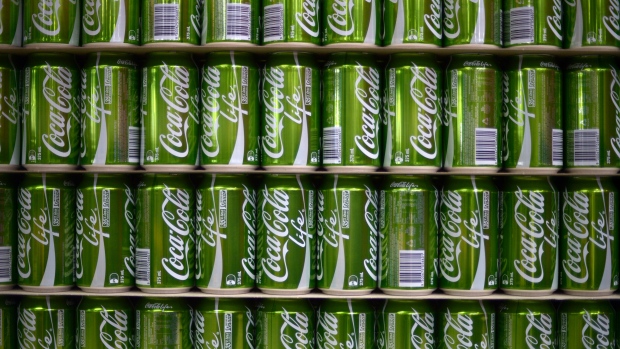Sep 17, 2018
Why Coca-Cola may add a cannabis component to its drinks
, Bloomberg News

Marijuana isn’t just about getting high. Everyone from soft drink-makers to pharmaceutical companies is looking to tap possible therapeutic uses of CBD, a cannabinoid found in marijuana. BNN Bloomberg first reported on Monday that Coca-Cola is in "serious talks" with Aurora Cannabis to develop CBD-infused beverages.
It’s a substance that’s capturing more attention as use of its source plant grows.
1. What is CBD?
Cannabidiol, or CBD, is a component of the marijuana plant. Unlike another marijuana compound, tetrahydrocannabinol, also known as THC, CBD doesn’t make you high or intoxicated.
2. What does it do?
Results from preclinical studies suggest CBD has anti-inflammatory, analgesic, anti-nausea and anti-seizure effects, according to Health Canada. While THC acts on specific cannabinoid receptors found in the brain and central nervous system, CBD appears to work throughout the body.
3. Is it legal?
Not in the U.S., according to the Drug Enforcement Administration; it’s still a Schedule 1 narcotic like marijuana. Still, you may have noticed more consumer products infused with CBD oil on store shelves. According to DEA spokeswoman Katherine Pfaff, these companies are skirting the law. She says DEA agents are more focused on drug traffickers and the opioid crisis and have mostly left CBD enforcement to local police. Adding to the confusion, CBD is considered legal in some states where medical or recreational marijuana is permitted. CBD is currently available in Canada with a medical marijuana prescription.
4. What companies are looking to use it?
Coca-Cola is exploring the possibility of using CBD as an infusion in “wellness beverages,” to ease inflammation, pain and cramping. In June, the U.S. Food and Drug Administration gave GW Pharmaceuticals Plc approval to sell a CBD-based treatment for two rare forms of childhood epilepsy. It was the first medical treatment derived from a marijuana plant that underwent a safety and efficacy review by the FDA. Insys Therapeutics Inc. is developing a CBD oral solution for a severe type of epileptic seizures. The market is growing faster than cannabis in the U.S. and could reach sales of $22 billion by 2022, according to a report from Brightfield Group, a cannabis market research firm.
5. Could Coca-Cola use CBD in drinks if it’s illegal?
No. But CBD can also be derived from hemp, a related plant that’s now illegal to grow. A farm bill passed by the U.S. Senate in June would legalize hemp production. This was backed by Senate Majority Leader Mitch McConnell of Kentucky, whose state would be poised to become a leading grower of legal hemp. Some CBD users say the hemp version is not as good. They’re hoping that the rising number of states allowing some form of marijuana use will encourage the federal government to rethink its prohibition.
Cannabis Canada is BNN Bloomberg’s in-depth series exploring the stunning formation of the entirely new – and controversial – Canadian recreational marijuana industry. Read more from the special series here and subscribe to our Cannabis Canada newsletter to have the latest marijuana news delivered directly to your inbox every day.



